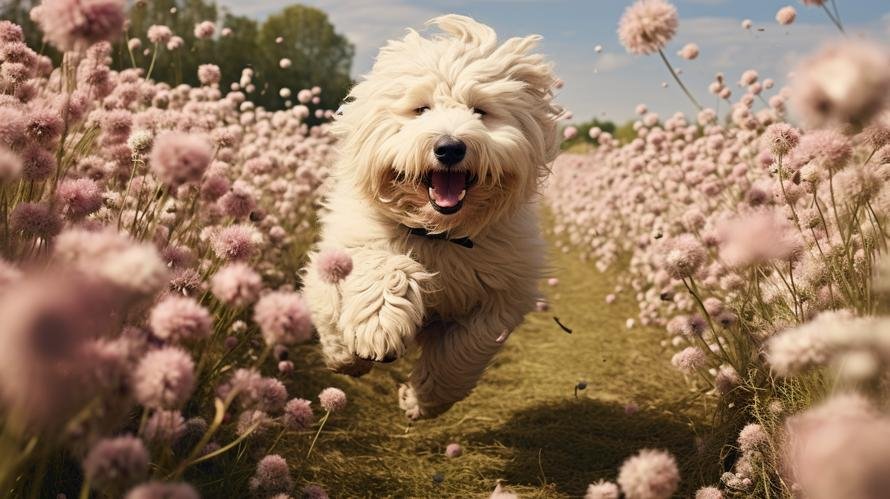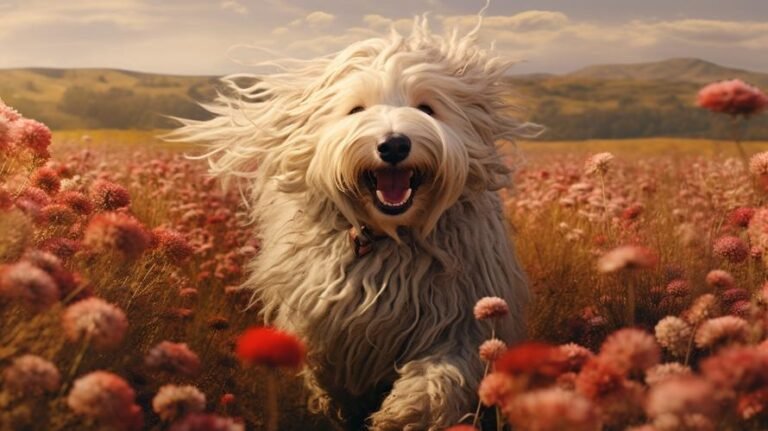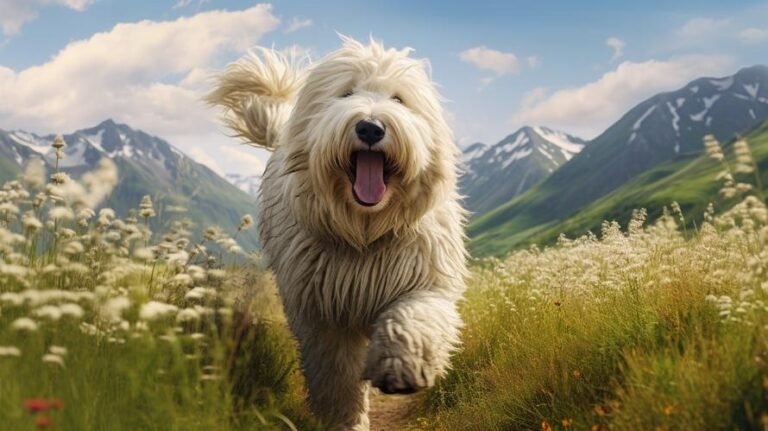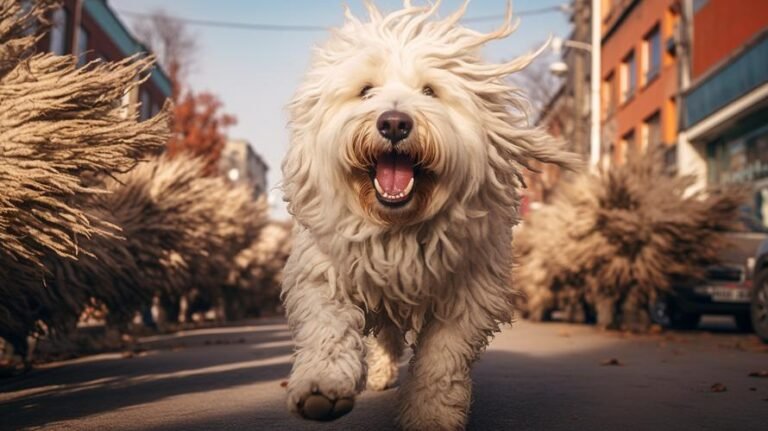Imagine a dog that could easily be mistaken for a walking mop head – with its dreadlocks neatly cascading down its large frame, this pooch is no less than a showstopper at any dog park. This canine is the Komondor, a breed with a noble heritage, primarily bred to guard livestock against predators. With their unique appearance and storied history, Komondors are not just any typical dog, and their dietary needs are quite as special as they are.
The Komondor, a breed dating back to at least the 16th century, hails from Hungary where it has been a formidable guardian of sheep and cattle. Their corded coat is not just for show; it serves as armor against the bites of predators and the harsh elements of the open fields. The dogs’ physical build expresses strength and fortitude, mirrored by a need for robust nutrition to maintain their health and vitality.
So, does this have implications for their diet? Absolutely.
First off, it is crucial to understand a Komondor’s growth stages to tailor their diet correctly. A Komondor puppy grows at an astonishing rate, meaning they require energy-dense foods with the right balance of protein, fats, and carbohydrates to support their rapid development. Quality puppy food that is high in these nutrients will ensure your Komondor’s bones and muscles develop properly, keeping those dreaded genetic disorders, such as hip dysplasia, at bay.
However, racing through a bag of generic puppy chow won’t do justice to this breed. The Komondor has a slower metabolism compared to other breeds. This is partly due to their historic roles as vigilant guardians rather than active herders or retrievers. This slower metabolic rate means they are prone to obesity if overfed or given high-calorie diets not suited for their activity level.
As they transition to adulthood (which could take up to two years), the dietary focus should shift to maintaining their health rather than supporting growth. This means that the adult Komondor diet needs to be well-balanced, with an optimal calorie count to match their daily activity level. An overweight Komondor not only struggles with maneuverability but also faces escalated risks of joint problems and heart diseases.
What about the ingredients? High-quality animal proteins from sources such as chicken, turkey, lamb, or fish should be at the top of the Komondor’s food list. Proteins are the foundation for their muscle mass and the upkeep of those regal dreadlocks – well, their entire coat, to be exact.
Furthermore, fats are not to be feared. They deliver necessary energy and help keep the Komondor’s skin and coat healthy. Nonetheless, the fats should come from good sources, like flaxseed or fish oil, which also provide omega-3 fatty acids, invaluable for joint, coat, and cognitive health.
Carbohydrates are often villainized in dog diets, yet they provide essential dietary fiber for a healthy digestive system. However, simple carbs such as corn or soy can lead to weight gain, so look for complex carbs in sweet potatoes, peas, or brown rice. They metabolize slowly, keeping your Komondor sated longer and helping to moderate blood sugar levels.
A special mention is warranted for the Komondor’s coat. Keeping it ‘non-felting’ and tangle-free on the inside requires the right balance of omega fatty acids. It’s one thing to have a mop – it’s another to have one that’s knotted and unraveled. Premium dog foods often add omega-6 and omega-3 fats that nurture the coat from the inside out, ensuring it remains as magnificent as you’d expect.
But what about dog food brands and types? While the pet food market might seem like a labyrinth of kibble, cans, and raw diets, not all are optimal for a Komondor. Grain-free options can be great, but they are not mandatory unless your Komondor has a grain allergy. Some grain-free diets have come under scrutiny because of their potential link to heart conditions, so it’s wise to choose a diet that’s well-rounded and complies with the Association of American Feed Control Officials (AAFCO) standards.
Premium kibbles that are vet-approved and made with whole foods rather than fillers and by-products can be an excellent choice. For those who may be more inclined towards a holistic approach, a balanced raw diet can also be appropriate, provided you work closely with a veterinarian or a canine nutritionist to ensure your Komondor’s nutritional needs are fully met.
While kibble or a raw diet may fulfill the nutritional side of the equation, hydration plays an equally critical role. Komondors may not always drink an adequate amount of water, especially if they spend a lot of time indoors or in cooler climates. This can lead to urinary tract issues. Ensuring that your Komondor always has access to fresh, clean water is non-negotiable, and incorporating wet food or water-rich vegetables like cucumbers or carrots can help keep them hydrated.
Speaking of vegetables, while Komondors are not known to be grazers of gardens, they do benefit from the inclusion of certain veggies in their diet. Carrots, spinach, and pumpkins are not just tasty treats; they offer vitamins and minerals that commercial dog food might lack. Antioxidants from these vegetables help support immune health, reduce inflammation, and promote longevity.
But with all this nutritional talk, let’s not forget about dental health. Large dogs like the Komondor often require dental care to prevent periodontal disease. Chewing on appropriate-sized dog toys and dental treats can help keep those pearly whites clean, complementing a robust diet.
In conclusion, the special dietary needs of the Komondor, reflective of their size, metabolism, and coat care, mandate that a one-size-fits-all approach to dog food does not suffice. Determines the best diet for your Komondor by considering their lifecycle stage, activity level, and overall health, working in partnership with a knowledgeable vet. Ensure your Komondor receives high-quality protein, balanced fats, complex carbohydrates, and an array of nutrients for a coat that remains as impressive as their ancestral line of guardianship.
A healthy and well-fed Komondor is a sight to behold – a stoic guardian, a loyal companion, and indeed, one of the most unique dogs that one could have the pleasure of sharing a home with. Carefully selecting the right food for this distinctive breed not only fulfills their daily nutritional needs but also honors their extraordinary legacy.



